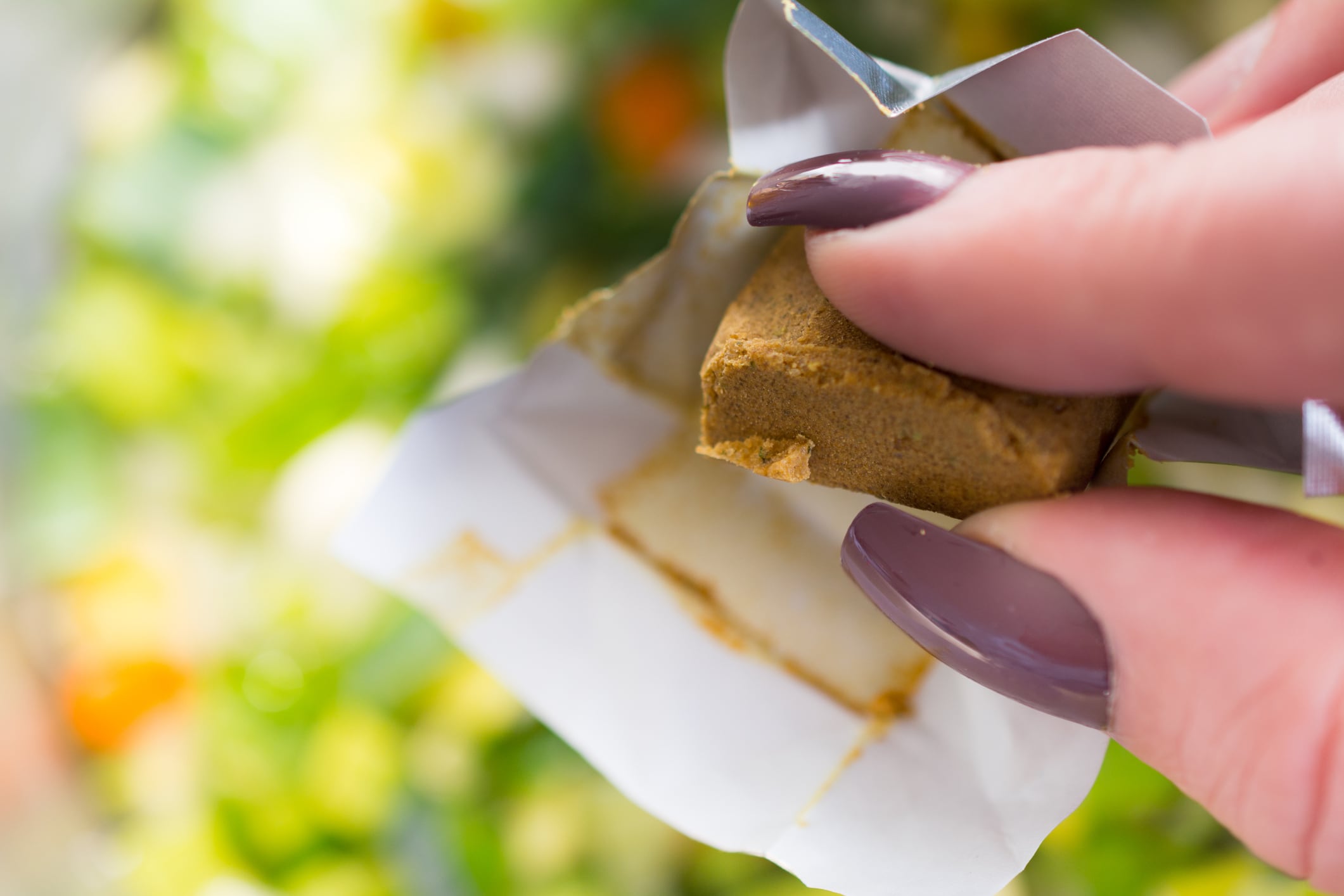Laboratory tests carried out by the consumer group claim to show that food products contaminated with mineral oil aromatic hydrocarbons – so-called MOAHs – are on the shelves across Europe.
The organisation published new test results of 152 products from Austria, Belgium, France, Germany and the Netherlands, carried out by two different accredited laboratories. One in eight food products tested was found to be contaminated.
Some 19 products (12.5 percent) were found to contain mineral oil residues. Contamination levels ranged from 0.63 mg per kilo in one product to 82 mg/kg in the other. Unilever's Knorr stock cubes for example were identified as highly contaminated with MOAHs in several different batches in the five countries. Several other products were also tested positive on MOAH. One batch of Nutella, sold in Germany, was contaminated with 2.3 mg/kg MOAH, whilst in other batches MOAHs were undetectable.
The potential source of the mineral oil contamination was unclear. Contamination in food products can occur during the whole production chain, as well as through the packaging material, it said.
Foodwatch claims aromatic mineral oils are toxic contaminants suspected to be carcinogenic and genotoxic. It is now calling for a ‘zero tolerance’ approach from the European Commission on the presence of MOAHs in food products.
The consumer organisation demanded an immediate EU-wide recall of all products tested positive and urged the Commissioner for Health and Food Safety, Stella Kyriakides, and the decision makers of the EU Member States to protect all consumers by adopting a zero-tolerance rule for MOAH contamination in all food categories across the EU. Aromatic mineral oils, so-called MOAHs, are toxic contaminants suspected to be carcinogenic and genotoxic, claimed Foodwatch.
"The European Commission, the European Council and the entire food industry have known about the dangers of MOAH in food for many years. It is scandalous that the EU, which always stresses the importance of consumer health, has still not eliminated this avoidable and absolutely unnecessary health hazard," said Matthias Wolfschmidt, Strategy Director at Foodwatch International.
Referring to the General Food Law (EC 178/2002) and its article 14 on food safety requirements, which states that “food shall not be placed on the market if it is unsafe”, Foodwatch demanded urgent action now. The consumer organisation launched an online petition to the EU Commission and Member States.
"Although the German food industry has made a commitment to the authorities to supply MOAH-free products, this happens in many cases, but not in all. Therefore, the EU must finally and as soon as possible anchor a MOAH zero tolerance for all food categories in the EU contaminant law," continued Wolfschmidt.
Foodwatch complained this is the third time it has conducted laboratory tests showing that products are contaminated with MOAHs. However, many products remain on the shelves in France, Germany, Austria, Belgium, the Netherlands and likely many more European countries.
In November 2019, Foodwatch published a laboratory test which detected dangerous mineral oils MOAH in several infant milk products, including products from Nestlé, Danone and Novalac. As a result, the European Commission and the Member States, decided in June 2020 to establish a threshold at 1 mg/kg of MOAH presence in baby milk powders. But according to Foodwatch this decision is inadequate to protect all consumers in Europe, as demonstrated once more by the results of a new series of tests carried out by the organisation on a broad range of food products. “MOAHs are ubiquitous in our foods,” it said.
“Mineral oils are found in many areas of the human environment. They have already been found - among others by Foodwatch - in numerous foods such as rice, pasta, chocolate and edible oils, but can also be found in packaging, children's toys, animal feed and cosmetics. Sources of mineral oil contamination can be from the machines and procedures used during harvesting and processing of food, or also from food packaging.”
But are MOAHs dangerous?
According to the European Commission, mineral oil hydrocarbons, or MOHs, and especially MOAHs, “are of potential concern for human health”. The European Food Safety Authority states MOAHs “may act as genotoxic carcinogens”.
EFSA states that mineral oil hydrocarbons (MOH) are highly complex mixtures that have a wide variety of industrial and domestic uses. There are several possible sources of MOH in food: mainly food packaging materials, food additives, processing aids and environmental contaminants such as lubricants. In general, MOH can be divided in two groups: saturated MOH (MOSH) and aromatic MOH (MOAH).
The potential human health impact of MOHs varies widely, it added. Only “a fraction” of MOAHs, it said, may act as genotoxic carcinogens. Furthermore, this fraction is generally removed from the most commonly marketed petroleum products.
While it can be expected that the large majority of the MOAH which we are exposed to via the food do not belong to the genotoxic and carcinogenic fraction, main limitations in the analytical methods do not allow a full characterisation of the MOAH present in the food. For this reason, EFSA’s opinion on mineral oils in food published in 2012 concluded that the possible presence of genotoxic and carcinogenic MOAH in food was of possible concern for human health, without being able to express the conclusions on the possible risks in quantitative terms.
Currently EFSA is working on an update of the 2012 scientific opinion on MOH in food. The draft opinion is expected to be released for public consultation by the end of the third quarter 2022.
Regulatory framework yet to be established
With no toxicological data available for evaluation so far, no tolerable intake nor other regulatory measures, with the exception of infant formula, has been derived to date across all 27 EU member states.
Public health bodies in Germany and France are however recommending that consumer exposure to MOHs and MOAHs should be limited by the use of barriers in packaging to limit the migration of oils from packaging into foods.
In the Netherlands, meanwhile, the Dutch National Institute for Public Health and the Environment (RIVM) has concluded that dietary exposure to mineral oil saturated hydrocarbons (MOSH) pose no health effects on the Dutch population.
Other studies have also suggested that some MOAHs are harmful, while others are not, making it important to distinguish between the different sources of contamination.
Foodwatch nevertheless demands regulation at the European level to establish legal limits for both MOSH and MOAH in food products. A spokesperson told FoodNavigator these limit values “must be low enough to ensure that no contamination of food with potentially carcinogenic MOAH is detectable using the most advanced methods of laboratory analysis,” we were told. “Food packaging must not release mineral oils or other harmful substances into the food. A ‘functional barrier’ must be prescribed for cardboard packaging.”
In response, Stefan De Keersmaecker, EC spokesperson for health, food safety and transport told us: “The Commission’s priority is the health of its citizens and the safety of the food we eat and the products we use.”
The contamination of food with mineral oil hydrocarbons, he explained, occurs during the production processes or originates from environmental contamination.
“MOHs, and especially aromatic mineral oil hydrocarbons (MOAH), are of potential concern for human health,” he said. “The Commission has been working extensively in recent years to make sure that these contaminants do not enter the food chain. The Commission takes note of the report published by Foodwatch, and will liaise with the NGO to ensure that food business operators and Member States competent authorities are made aware of its findings. Member States authorities are in charge to undertake the appropriate follow-up measures.”
A Unilever spokesperson told us: “The safety of our consumers is our number one priority. We take the issue of the presence of mineral oil hydrocarbons in our food products very seriously. We are actively investigating the individual measurement results reported by Foodwatch.”




